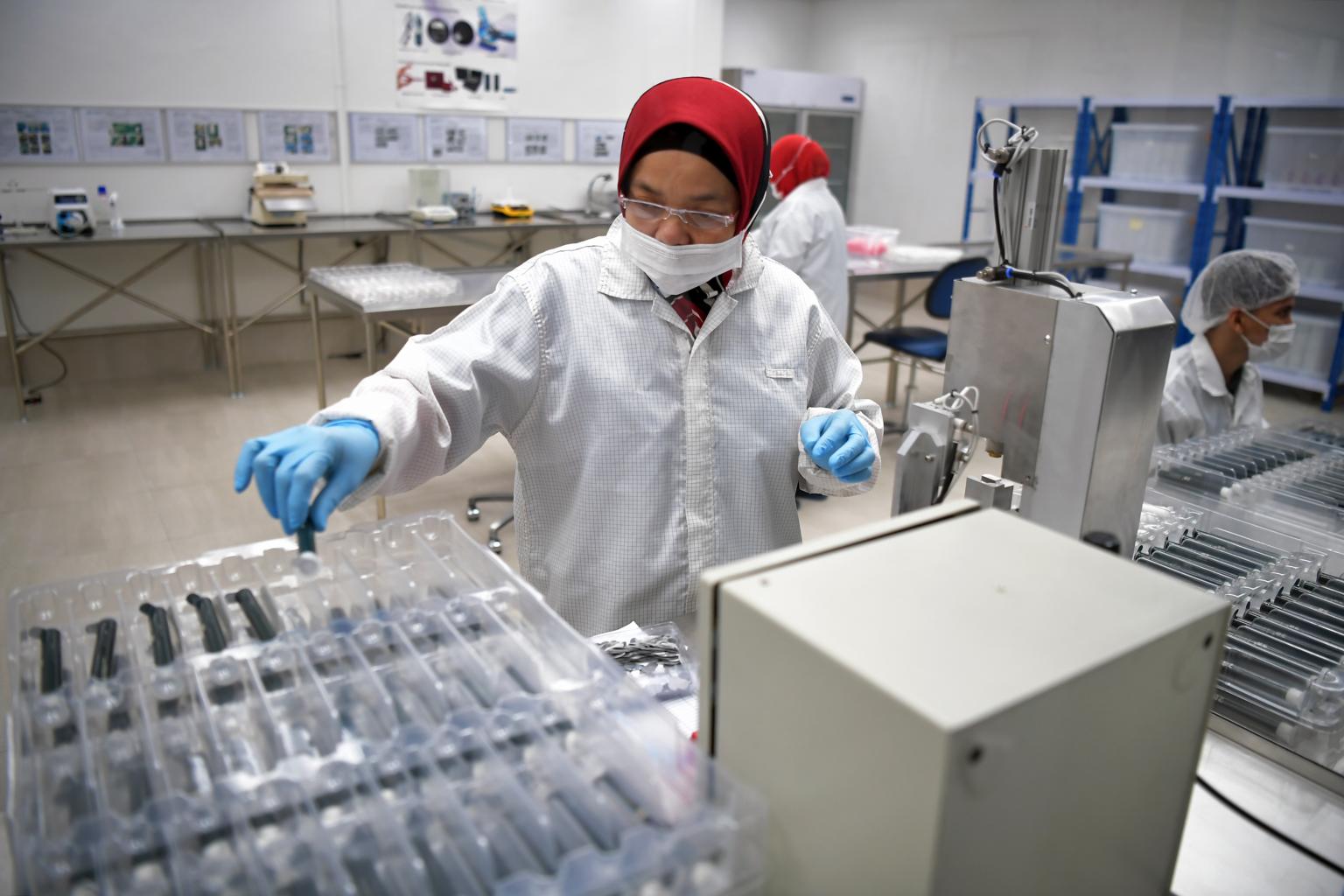Pandemic-driven medicine stockpiling to boost S'pore pharmaceutical exports, output: Report
Sign up now: Get ST's newsletters delivered to your inbox

Singapore's biomedical industry employs more than 24,000 people and in 2019 accounted for about 20 per cent of the manufacturing sector.
PHOTO: ST FILE
Follow topic:
SINGAPORE - The coronavirus outbreak has triggered worldwide stockpiling of certain medicines and drug ingredients, boosting demand for exports from an increasingly important component of Singapore's manufacturing sector, according to a Fitch Solutions report.
The report quoted Mr How Ti Hwei, former president of the Singapore Association of Pharmaceutical Industries, as saying: "Companies and governments around the world are building large inventories of active pharmaceutical ingredients (APIs) and drugs to ensure supplies of medicines remain uninterrupted and can be made close to market."
Pfizer Inc, one of the world's largest pharmaceutical companies, recently stated that it had witnessed a tremendous increase in demand for anti-infectives, Fitch Solutions said.
Singapore is one of the global locations where Pfizer and other multinational companies produce anti-infectives - medicines used to prevent or treat antibacterial and antiviral infections.
More than 50 pharmaceutical manufacturing facilities, including plants owned by eight of the world's ten biggest pharmaceutical firms, are located here.
The United States, Europe and Japan were Singapore's biggest export destinations for APIs in recent months.
"Pharmaceutical production and exports will be a boon for Singapore's overall manufacturing and trade environment," the report said.
Singapore's biomedical industry employs more than 24,000 people and in 2019 accounted for about 20 per cent of the manufacturing sector, which in turn represents about a fifth of the nation's gross domestic product, said the Fitch report.
According to Singapore's Economic Development Board, while overall manufacturing shrank 0.7 per cent year on year in the second quarter of this year - due mainly to the local circuit breaker measures and weak external demand caused by the pandemic - the biomedical cluster expanded 10.6 per cent. Biomedical manufacturing was the best-performing manufacturing cluster for the year to July, growing 19.4 per cent.
Trade promotion agency Enterprise Singapore earlier this month upgraded its full-year forecast for non-oil domestic exports amid the better-than-expected performance for specific products, including pharmaceuticals.
Fitch said Singapore is one of the few countries that has a positive pharmaceutical trade balance.
In 2019, the Republic exported US$8.1 billion (S$11 billion) worth of medicine, with Switzerland, the Netherlands and the US among top destinations. During the year, Singapore imported US$3.1 billion worth of pharmaceuticals, mainly from the US, France and Germany.
Singapore has been working to make the country an attractive location for innovative pharmaceutical research and development.
The Experimental Drug Development Centre (EDDC) was established last year as a result of the integration of the Agency for Science, Technology and Research's drug discovery and development units, namely the Experimental Therapeutics Centre; Drug, Discovery and Development (D3); and the Experimental Biotherapeutics Centre.
Fitch said: "It is hoped that EDDC can better coordinate public-private partnerships in Singapore's drug development ecosystem, and allow industry partners greater ability to translate discoveries into new medicines."

